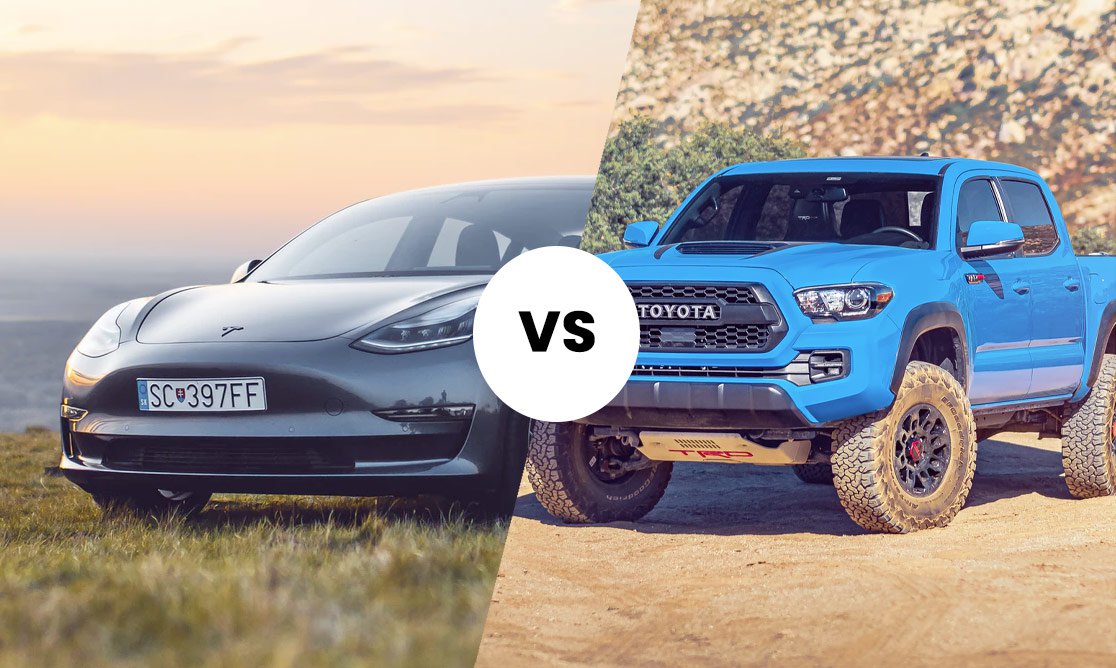- Do you need to finance a new vehicle and can’t decide between a personal loan and a car loan?
- Wondering what type of loan gives you the best interest rate and borrowing conditions?
- Find out the primary differences between a personal loan vs. a car loan and which is your best option.
Buying a new car can be an expensive affair and unless you have set money aside, you’ll probably have to borrow money.
Personal loans (unsecured and secured) and car loans are the most common financing options if you would rather not lease. The former can generally be used for any personal purposes, including buying a car. The latter, as its name implies, is strictly to purchase a vehicle.
There are pros and cons for each type of loan, so it’s a good idea to compare your options before signing on the dotted line. And that’s where this guide helps.
Flexible, but can be difficult to get
Unsecured loans
An unsecured loan provides the borrower with a lump sum of money that can be used at the borrower’s discretion. Lenders may not permit an unsecured loan to be used for business purposes.
Things you can use an unsecured loan for include buying a holiday, home renovation projects, wedding expenses, consolidating debt, etc.
Unsecured loans are available with fixed or variable interest rates. A fixed loan means knowing exactly how much you will pay and when, whereas a variable loan can be repaid back early and typically has a redraw facility.
Pros
- No restriction on how funds are spent with unsecured loans.
- Variable or fixed interest rates are available.
- Repayment plans between 1 and 5 years.
- No fees on early payments for variable unsecured loans.
Cons
- Unsecured loans typically have higher interest rates than car loans.
- It’s generally harder to get an unsecured loan than a car loan.
- You may not qualify for an unsecured loan if you have a poor credit score, but you might for a secured or car loan.
Easier to get than unsecured, more flexible than car loans
Secured loans
You can think of a secured loan as being very similar to a car loan.
The main difference between the two is the restriction on what they can be used for. Whereas a secured loan can be used for a variety of different purposes, a car loan is specifically for buying a car. Secured loan interest rates are similar to those of car loans and lower than the typical unsecured loan.
A secured loan may take longer to process than an unsecured loan.
Pros
- It’s more likely you’ll be approved for a secured or car loan than an unsecured loan, especially if you have bad credit.
- Interest rates on secured loans are typically lower than on unsecured loans and around the same as those of car loans.
- Secured loans can be used to fund a variety of expenses.
Cons
- A secured loan can take longer to process since additional paperwork and checks are required.
Get a more detailed comparison of secured vs unsecured loans.
Secured on the car you are buying
Car loans
Car loans are a type of personal loan secured against the vehicle. You can only use the money to fund a car purchase, and any missed payments may allow the lender to seize the car.
Most car loans have a fixed interest rate. This means you’ll pay off the loan in fixed instalments. However, just like a home loan, the lender retains ownership over the asset until you make the final payment.
Car loans are generally cheaper than unsecured personal loans. Repayment periods vary from 1 to 7 years. Since they are secured on the asset, secured loans are easier to get approved for even if you have below average credit.
Some lenders may apply restrictions on the cars that you can purchase. For instance, you may not be able to buy a used car or a specific make and model.
Pros
- Lower interest rate compared to unsecured personal loans.
- Easier to obtain regardless of your credit history.
- You may often be able to borrow a higher amount and fund a more expensive car.
Cons
- Some lenders require an upfront deposit to secure the loan.
- The vehicle is used as collateral against the loan, with the lender retaining ownership until the debt is paid in full.
- Some lenders apply restrictions on the type and brand of car you can purchase. This would not be the case for an unsecured loan.
Which is better?
Are you planning to buy a new or a used car? Is your credit history impeccable or mediocre? Would your budget do better with a lower interest rate, or would you rather avoid using the vehicle as collateral?
When picking the best loan for buying a new car, it all comes down to your needs and individual circumstances.


